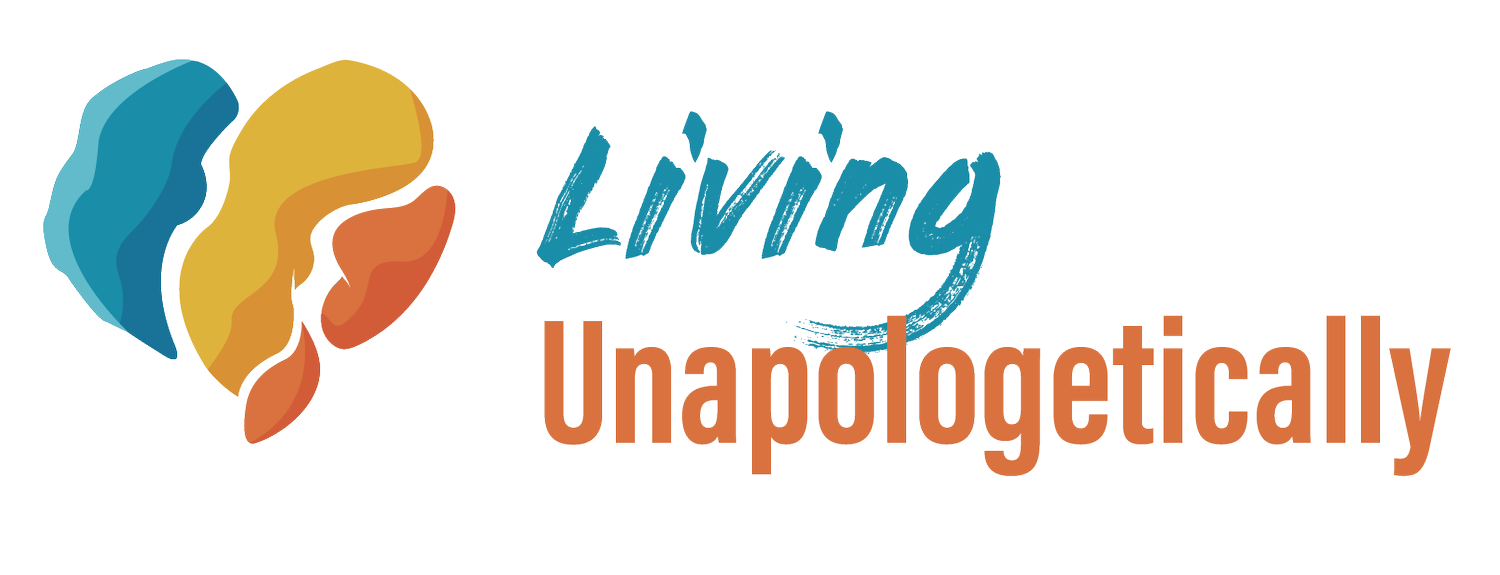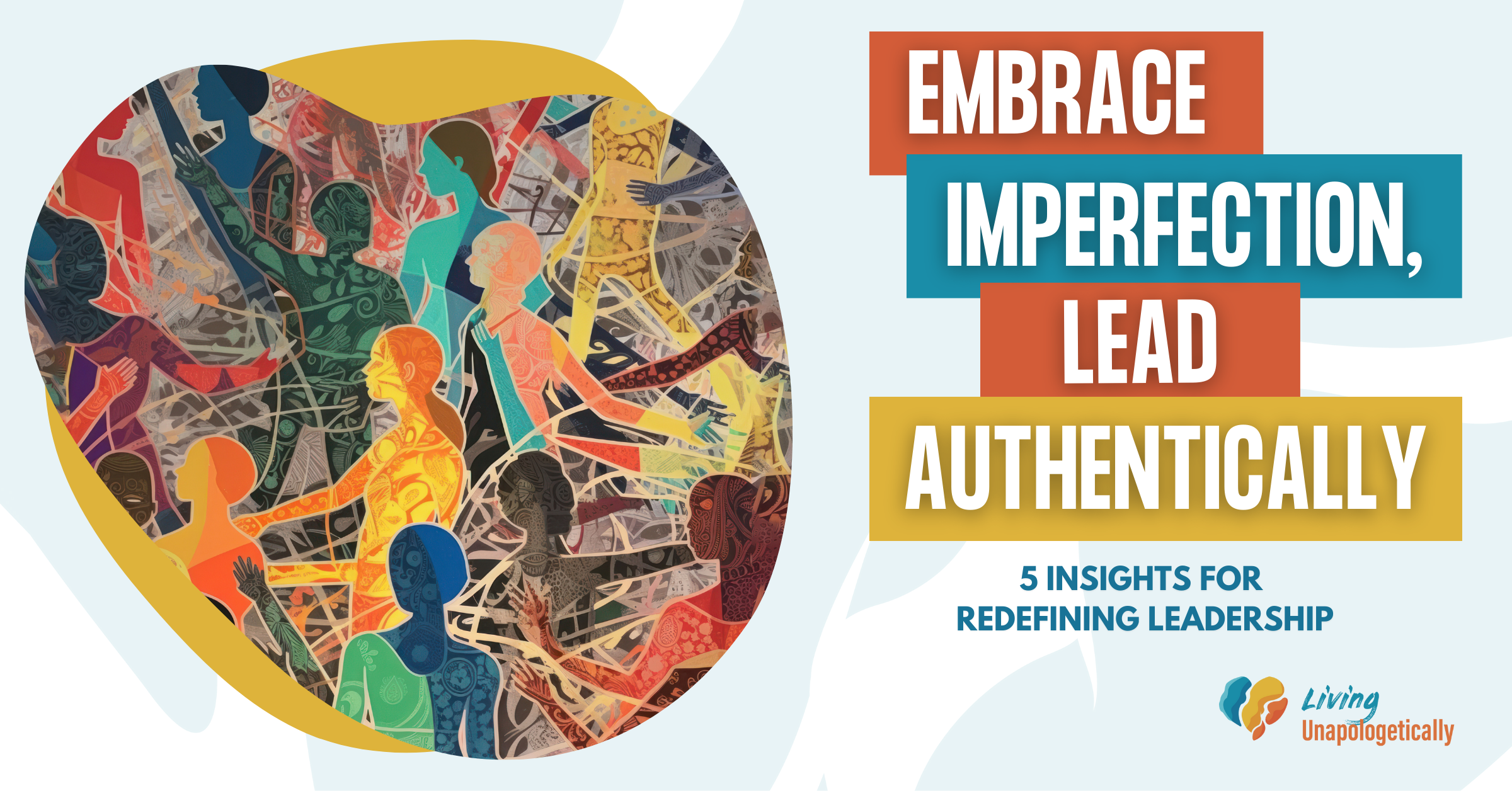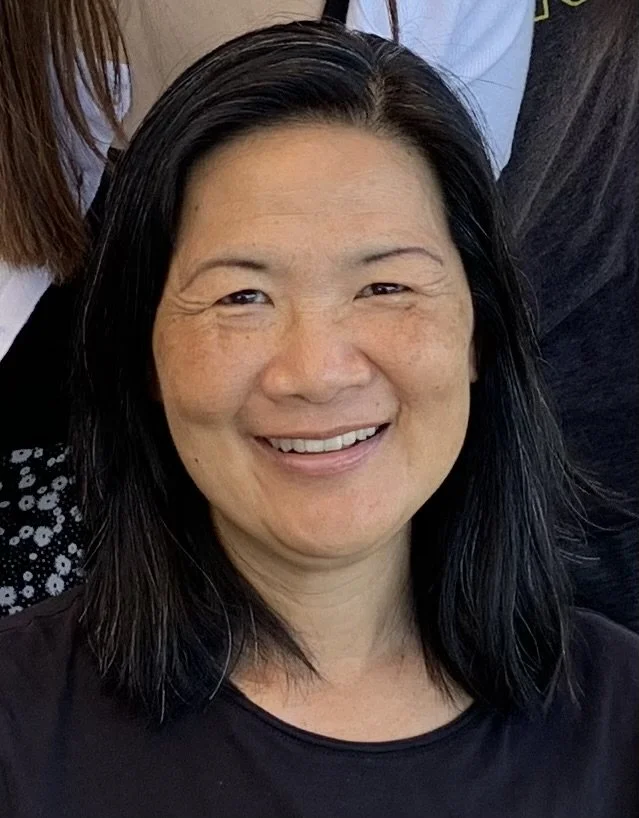Embrace Imperfection, Lead Authentically: 5 Insights for Redefining Leadership
In the dynamic world of leadership, internal reflection and alignment with personal values are often the anchors that keep us grounded during turbulent career transitions. This is especially true for leaders who are at the crossroads of relinquishing long-term roles. The decision has far-reaching effects on one's personal and professional life, making it imperative to engage in deep introspection and thoughtful decision-making. This was the case for Sharon Chun Wetterau and I got to learn directly from her story when we sat down for an episode on the Living Out Loud Discussion Series. Every leader’s experience is their own, but there were some poignant takeaways that are relevant to people who want to make changes in their organizations. To watch the full episode, play the video below.
Read on as I share insights on leadership struggles, opportunities to engage in meaningful action, and ways to acknowledge and rectify past mistakes.
Societal Pressure: Climbing the Corporate Ladder vs. Personal Fulfillment
In today's fast-paced world, there's a societal expectation to constantly pursue opportunities to climb up power structures. But it's vital to remember that our career trajectory isn't merely defined by the heights we attain but the fulfillment we derive from our work. Sharon's reflection enables us to re-evaluate our own journeys, highlighting the importance of finding alignment between our personal values and our roles, and the need to reflect if our current position no longer resonates with those values. The current trend of just moving upward can sometimes lead to overlooking the significance of satisfaction derived from the role. Striking a balance between aspiration and fulfillment becomes the key to a rewarding career journey.
Throughout our conversation, we shared candid experiences of moving through distinctive roles. Our journeys illuminate how we navigated the assumption that higher is always better. She speaks of her unanticipated departure from a leadership position that was no longer in harmony with her values. Sharon's transition from this role was filled with trepidation and exhilaration, as she navigated the change and confronted new challenges. A critical factor in her shift was considering the pros and cons and consulting with her peers, which helped to create greater clarity in her decision-making process. But most importantly, her journey emphasizes that choosing a position that genuinely reflected her passion to help others feel seen and understood became her new measure of success, rather than the height of the corporate ladder.
The importance of this insight extends far beyond Sharon's experience. In a world where societal norms emphasize the value of escalating professional stature, we're often misguided about the true meaning of success. Success isn't just about ascending to higher roles; it's about tuning into your values and deriving fulfillment from the work. This realization doesn't come overnight. It demands self-reflection and courage. Our roles should align with our passion and core beliefs to bring out the best in us, leading to personal satisfaction and better outputs. Otherwise, we risk feeling unhappy and unfulfilled, no matter how lofty our titles may be. Therefore, these conversations are reminders of the need for introspection, encouraging us to redefine success in our own terms.
The Importance of Vulnerability and Honesty in Leadership
In our increasingly dynamic and complex world, the value of transparency, vulnerability, and honesty in leadership rings true. Central to this is the ability to acknowledge our own imperfections, mistakes, and areas for growth- just like everyone else. There's a strong and important distinction between being a leader and attempting to be a veneer of perfection. The latter not only creates unreasonable expectations but can also create an invisible barrier between the leader and the team they lead. Leaders who embody vulnerability are seen as more approachable, human, and relatable- creating environments of mutual respect and understanding. This reality underpins the importance of these qualities not just in our personal lives but significantly in our roles as leaders- no matter the field or profession.
Sharon Chun Wetterau, LCSW, LISW is the former Assistant Director of Practice Education at CA State University, Dominguez Hills’ Master of Social Work program. With over 23 years in higher education, Sharon has been blessed to have served at UCLA, The OH State College of Social Work and Fresno State. She has enjoyed teaching courses in diagnostic assessment, community mental health, Critical Race Theory, and public child welfare.
Clinically, Sharon has worked with adults and families in the child welfare, community mental health, and the developmental disabilities systems in CA and OH. She enjoys helping others to navigate systems and is currently working with low income older adults for a healthcare company. As a 3rd and 6th generation Chinese American, she is active in the Asian American Pacific Islander community and at her church. She is blessed to have the support of her spouse and two teenage children. Sharon enjoys watching movies and loves to hang out with younger people.
Sharon shared her own unique perspective and experiences on this journey of leadership. There were times when the balancing act between professional responsibilities and personal life became overbearing, leading to feelings of life spinning out of control. The fear of unsettling conversations, coupled with the gravity of her role, sometimes hindered her approachability or created avoidance altogether, creating missed opportunities for deeper connections. Reflecting on this, Sharon expressed regret over these missed moments, admitting how vulnerability could have been a powerful tool in these scenarios. Navigating through these vulnerabilities and embracing honesty, she advocates, could pave the way for stronger bonds with students and colleagues alike. Sharon’s journey isn’t a solitary one - many leaders grapple with similar challenges, and her candid sharing provides affirmation, encouragement, and valuable lessons for others in similar positions.
The value of this transparency, vulnerability, and honesty isn't merely theoretical. Primarily, it's about fostering deeper connections and building trust within teams. Leaders who lean into and embrace their vulnerabilities are seen not just as figures of authority, but as people, nurturing an environment of mutual respect and understanding. This shift in dynamics can have profound effects on team morale, engagement, and productivity, transforming the workplace into a more harmonious, effective, and safe environment. Vulnerability and honesty allow space for growth and learning from mistakes - essential elements for any thriving organization. In an age where authenticity is increasingly valued, leaders who embody honesty and vulnerability are able to establish stronger, more genuine connections with the people they lead, proving that these attributes are essential in our journey of leadership.
Utilizing Communication and Reflection to Foster Inclusion and Trust in the Workplace
Effective communication and thoughtful reflection can form the backbone of creating inclusive and trustworthy work environments. This understanding invites us to look beyond the conventional parameters and dig deeper into the philosophies that guide our interactions in professional settings. Considering the appealing nuances of communication lets us see how our spoken or unspoken words can shape the dynamics within a group. And for sure, reflection's role is paramount. By being open to learning and reflecting, we can bring necessary improvements in our behaviors.
Here we are led to think about the concept of expiration date, highlighting that our past mistakes do not bind us forever, leaving space for acknowledgment, repair, and growth. Looking further into Sharon's perspectives, we can find several significant takeaways. Her experiences of facilitating communication in her work show the power of openness in addressing past issues and the effect it has on strengthening trust. Sharon's experiences as an Asian American woman also play a significant role in her understanding of the group dynamics, giving her extra insight into the importance of not equating someone's silence with agreement. Notably, her approach to making people feel seen and acknowledged in a group interaction carries a refreshing take on inclusivity – emphasizing how circling back can build safe spaces and foster harmony across our differences.
Understanding the importance of communication and reflection in the workplace cannot be understated. They are intertwined with diversity, equity, and inclusion and critical in shaping individual behaviors and the overall culture within an organization. Acknowledging past missteps and constantly striving to improve is not only a demonstration of growth on an individual level but is also a testament to the potential for positive change on a larger scale. This change can lead to safer spaces, reduced misunderstandings, and greater trust among colleagues. At the same time, having these dialogues in a timely fashion can also avert potential conflicts, paving the way for constructive interactions. To put it simply, embedding effective communication and regular self-reflection into our behavior can go a long way in creating the types of work environments that feel safe.
The Role of Identity, Privilege, and Oppression in Leadership
Our identities shape the tapestry of our experiences, coloring our perspectives of the world. The role of identity, privilege, and oppression in leadership is particularly vital, primarily because leaders hold a significant amount of power and influence. This influence, however, extends beyond the surface level interactions and seeps into the very structures they help create and perpetuate. The intersection of these parts of us opens up a unique opportunity. It allows leaders, particularly those from communities that are historically marginalized, to contribute to a mosaic of leadership experiences. Understanding the complexities from different angles can help us better understand what’s needed to create safety in organizations and pathways to get there.
There was a moment in my conversation with Sharon where we held multiple truths. These truths stemmed from her experiences of internalized oppression AND those as someone with privilege. In real time, we made space for her to grapple with this reality because it is essential to know what drives our behaviors. People in leadership have certain privileges and power that those in non-leadership roles don’t have. This is the case across our intersectional identities. Sharon stayed in the moment when I pointed out the extra layer of responsibility to assess and understand how these privileges may contribute to the oppressive system. As we dug deeper, her story revealed ways our identities and culture undeniably influence our experiences. Thus, influencing our behaviors. I recommend you watch or listen to the episode to get the full impact of her reflection. It’s powerful! She hopes this will lend further depth to the understanding of roles and responsibilities as a leader. When I reflect on why the role of identity, privilege, and oppression matters in leadership, I can't help but highlight the critical role self-reflection plays. For real.
Self-reflection isn't just an act of introspection; it's a pathway to growth, self-awareness, and valuable change. By examining our behaviors and acknowledging the privilege we hold, we can better grasp the implications of our actions. Through this, there lies an opportunity to disrupt the status quo, challenge oppressive systems, and create spaces that are truly inclusive. We must remember that a critical aspect of leadership is to lead by example, and by doing so, we can set the precedent for others to follow. By integrating these conscious practices and creating a dialog around identity, privilege, and oppression, we foster an environment that enables personal growth and shameless authenticity. This essence of being genuine should be the cornerstone of any leadership, making it a noteworthy and significant conversation for everyone.
The Power of Acknowledging and Correcting Past Mistakes
One key focus during my conversation with Sharon revolved around an incredibly important topic - the power of acknowledging and correcting past mistakes. It's a concept that resonates deeply, yet many often underestimate its significance. How do many of us face difficult realities, failures, or setbacks? Often the answer is - not very well. For most, the default response is to brush them aside, move on swiftly or even get defensive and place blame elsewhere. It's a natural tendency to avoid facing discomfort, one rooted in fear or shame. However, in denying ourselves the opportunity to acknowledge and correct these errors, we miss out on valuable growth opportunities and harshly limit our potential to have strong relationships with ourselves and others.
Sharon’s shared insights offer a solid demonstration of the transformative power and self-discovery these acknowledgements can ignite. Through her own experiences, she underlined the importance of embracing flaws, admitting shortcomings, and immediately addressing them. She modeled this in real time; it was beautiful! Sharon talked about allowing herself to be vulnerable, expressing regrets over missed opportunities, and acknowledging the areas she fell short in. When we gloss over our mistakes or defer acknowledging them, she explained, we could miss windows of opportunity to rectify them, learn vital lessons, or even restore lost trust. Through her described experience of circling back to address past mistakes or miscommunications in her work, Sharon depicted a potent demonstration of how this practice can mend relationships, deepen mutual respect and trust amongst team members, and ultimately develop an overall healthier work environment.
Understanding why the act of acknowledging and correcting past mistakes can be a game-changer for many. It's not just about damage control in the wake of errors. It's far more profound than that. It's about cultivating a culture of honesty, leaning into resilience, and promoting significant personal growth. Coming face-to-face with our mistakes, weaknesses, or failures can be a daunting prospect for many of us. However, it's a necessary step towards personal and professional growth. Acknowledging our blunders lets us take ownership, empowering us to make better choices moving forward. Furthermore, seeking repair allows room for trust-building within the workspace, all while promoting a more positive, forgiving, and productive work culture. To fully utilize our potential, we must learn to face our mistakes boldly, understand their genesis and impacts, and then figure out ways to correct these actions. After all, to err is human, but to learn and evolve from these errors is truly growth at its finest.
Have you tried these tactics and strategies? Share your successes and challenges with us in the comments.
Contact us if you’re ready to elevate your leadership in your organization.
Charmaine is a Relational DEI expert who sits at the intersection of thinking, feeling, and doing. She is an author, facilitator, skill builder, safe-space holder, family member, partner, and friend. And in all of those, her DEI lens is in constant use. Charmaine uses a social justice lens to help clients explore their individual and organizational needs amidst the backdrop of power, privilege, and oppression. You can access her book (Bias-Conscious Leadership), guided meditations, free tips sheets & guides, and blog posts on her website, www.livingunapologetically.com.







